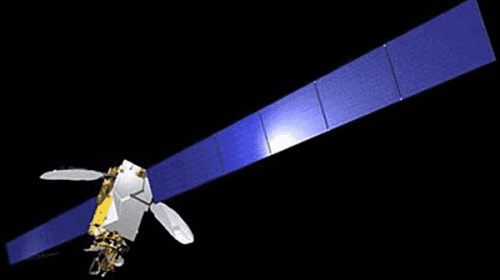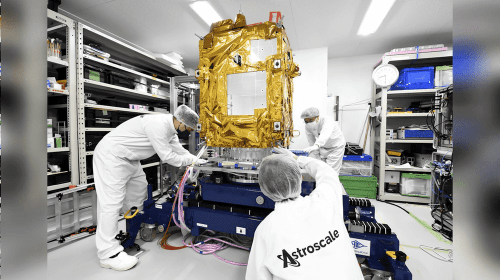How crucial is this for Taiwan’s national security?
Apr 23, 2025
Taiwan’s largest telecommunications provider, Chunghwa Telecom, has recently entered into a significant partnership with Astranis to invest in a dedicated MicroGEO satellite, which the companies reported would be the first communications satellite exclusively dedicated to Taiwan. This is a major investment towards Taiwan’s intent to secure its communications infrastructure from outside influences, especially when China is suspected to have been involved in past disruptions of Taiwan’s connectivity infrastructure.
 Chunghwa Telecom’s headquarters located in Taipei, Taiwan. Credit: Google
Chunghwa Telecom’s headquarters located in Taipei, Taiwan. Credit: Google
Chunghwa Telecom Chairman Dr. Alex C.C. Chien said that the company has been engaging in satellite initiatives in recent years and that the Astranis MicroGEO solution would provide the necessary responsiveness and stability to its satellite strategy. In addition, he also said that this collaboration will enable them to construct a specialized, secure digital infrastructure for Taiwan, which will be a vital real time backup against natural disasters, submarine cable disruptions, and evolving global uncertainties. The strategic move is a direct response to Taiwan’s vulnerability to Chinese interference in its communication systems as shown by past incidents where submarine cables were reportedly severed by Chinese vessels without conclusive proof of deliberate action.
While the Astranis partnership is just one piece of Chunghwa Telecom’s multi-orbit satellite strategy, it is an important one, which includes the Geostationary Orbit satellite ST-2 launched in 2011, a Medium-Earth Orbit agreement with SES, and a multi-million dollar deal with Eutelsat for OneWeb Low-Earth Orbit satellite services. Eutelsat OneWeb services will be integrated by the telecommunications company as a backup for terrestrial fixed and mobile networks, submarine cables, and microwave communication services offered to the company’s government and business customers. Executive Vice President Alex Chien of Chunghwa Telecom said that being an island, Taiwan depends heavily on submarine cables for external connectivity and satellites are currently the second choice, so satellite services are the key communication tools for the Taiwanese government and businesses. At the same time, he added that by combining Eutelsat OneWeb’s LEO satellite service with their Geostationary Orbit satellite service, Chunghwa Telecom was the first to set up a multi-orbit satellite service portfolio. The National Communications Commission reported this diversification of communication channels is important after recent incidents in which Taiwan blamed two Chinese ships for deliberately cutting its undersea internet cables, citing Taiwan’s telecom service.
Taiwan is also strengthening its indigenous Low-Earth Orbit capabilities, with the Taiwan Space Agency recently contracting U.S.-based CesiumAstro to provide components for its Beyond 5G LEO satellite program. The indigenous space technology development further enhances Taiwan’s ability to counter any potential Chinese interference with its communications infrastructure and diminishes reliance on physical connections that cross through waters where Chinese vessels operate. In addition, the development of domestic satellite capabilities gives Taiwan greater technological sovereignty in an area of vital national security importance, given the rising tensions with China. This satellite initiative, as geopolitical tensions between Beijing and Taipei continue to escalate, is a vital defensive measure that goes beyond improving Taiwan’s communications quality and reliability to be a powerful statement of technological self determination in the face of greater and greater pressure from mainland China.





